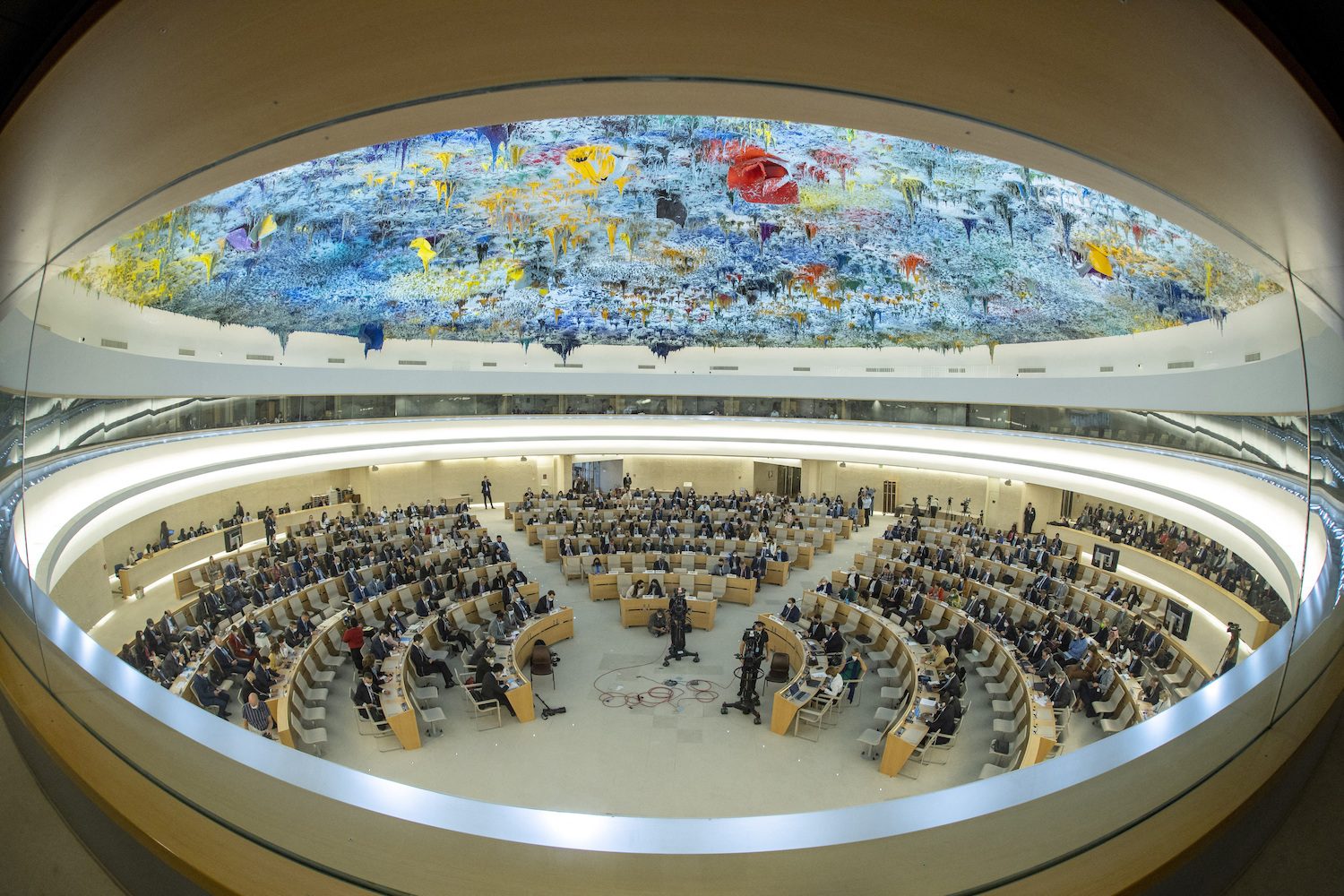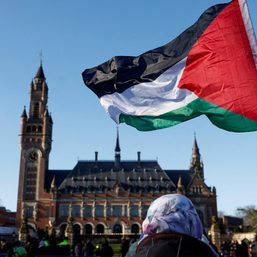SUMMARY
This is AI generated summarization, which may have errors. For context, always refer to the full article.

MANILA, Philippines – The Philippines will once more undergo on November 14, the Universal Periodic Review (UPR), a process that involves an assessment of human rights records of all 193 United Nations member states, under the auspices of the United Nations Human Rights Council (UN HRC).
Last reviewed in 2017, a year into the Duterte administration, the upcoming review will take a look at the country’s track record from 2017 to 2022. (READ: Will UN give Marcos a clean slate on human rights?)
It’s the Working Group of the UN HRC – consisting of 47 member states – that does the review. The Council’s objective? To improve human rights in all countries and address violations whenever they occur.
Get to know the UN HRC – a body established by the UN General Assembly on March 15, 2006, to replace the UN Commission on Human Rights (UN CHR). The UN CHR was dissolved due to the lack of accountability among its member states.
Whether or not you are a human rights advocate, here are things to know about this UN body.
Membership
Membership in the Council is divided into 57 seats, split across the five Regional Groups of the UN. Currently, there are 47 members on the council. The Philippines was part of the first council, from 2006 to 2007, then in succeeding councils from 2008 to 2010, 2012 to 2014, 2016 to 2018, and from 2019 to 2021.
The current president of the UN HRC is Argentinian Federico Villegas, whose term runs from the start until the end of 2022.
What does the UPR do?
Conducted every four-and-a-half years, the UPR is a regular assessment of every member state of the UN. The order in which member states are reviewed is determined through lots. There are three special rapporteurs or “troikas” who assist in the assessment of each member state.
Once the review is completed, an outcome report is submitted for viewing. These reports include the questions and comments made during the assessment and the recommendation of the Council.
The report also includes the responses of the member-state under review. Reports should be submitted within 48 hours of the conclusion of the assessment. A follow-up report of the member state is made a year before its next assessment.
Besides the Philippines, the upcoming review from November 7 to 18, 2022 will include 13 other member states: Algeria, Bahrain, Brazil, Ecuador, Finland, India, Indonesia, Morocco, the Netherlands, Poland, South Africa, Tunisia, and the United Kingdom. (READ: PH vows ‘real justice in real time’ at UN Human Rights Council meeting)
What are the other functions of the UN HRC?
The Council also serves different functions or subsidiary bodies. It has an advisory committee composed of 18 members of the UN HRC. The committee serves as the think tank of the Council, which meets twice a year. This body provides advice and recommendations to the Council based on the committee’s studies and research.
A complaint process is also in place, where any individual or group can submit in writing a complaint against a member state. Complaints can be filed against a member state, even if that state is not part of a treaty. These can range from a forced eviction of a minority group to the maltreatment of detainees and prisoners.
These complaints go through a Working Group on Communications, which initially filters out complaints submitted. If consistent patterns are found throughout multiple reports, these complaints are then submitted to the Working Group on Situations, which presents to the UN HRC its findings and recommendations for the particular complaint.
Other subsidiary bodies include the following: Expert Mechanism on the Rights of Indigenous Peoples, which ensures that the rights of indigenous peoples are protected and that member states enact them; the Forum on Minority Issues, which assists programs and efforts to ensure the welfare of ethnic, linguistic, and religious minorities; and the Social Forum, which opens dialogue between member states, NGOs, and civil society on various human rights issues.
What sets the UN HRC and International Criminal Court apart?
It is important to note that the UN HRC does not have jurisdiction over human rights abuse cases; it can only investigate and give recommendations based on independent studies, research, and information provided by both the government and NGOs.
The UN HRC’s set of recommendations for the Philippines last October 2020 was criticized for being too “weak” in addressing the increasing number of extrajudicial killings under the previous Duterte administration. (READ: UN rights body offers PH ‘technical assistance’ to address killings)
The International Criminal Court (ICC), on the other hand, is a governing body independent of the UN that acts on these reports and findings. It can prosecute individuals for genocide, crimes against humanity, and war crimes.
ICC Prosecutor Karim Khan insisted last September that the investigations on the drug war under Duterte should continue, noting that the Philippine government’s deferral of the investigation is “not warranted.” (READ: ICC prosecutor insists probe into ‘killings’ under Duterte should resume)
What resolutions have been passed by the Council?
Resolutions are documents that represent the views and positions of the Council on different human rights issues. These are voted on by members of the Council, with a simple majority being enough for a resolution to pass.
The Council adopts multiple resolutions every session. Recent adoptions include the official collection and preservation of evidence of human rights abuses in Sri Lanka, the human right to live in a healthy environment, and the freedom of religion or belief.
In its history, it has passed two resolutions to suspend member states from the Council: Libya in 2011 for the crackdown of late dictator Muammar Gaddafi on anti-government protesters, and Russia in February 2022 for reports of human rights abuses in Ukraine. (LIVE UPDATES: Russia-Ukraine crisis)
What other controversies surround the UN HRC?
The Council has not been free of controversy, however. Like its predecessor, the UN HRC has been criticized for including member states with known track records of human rights abuses. China and Saudi Arabia were eyeing seats in the 2020 elections, which, according to Human Rights Watch, are “two of the world’s most abusive governments.”
It has also been accused of being selective about issues, choosing to permanently focus on the Israeli-Palestinian conflict each session. Previous UN Secretary-Generals Kofi Annan called the measure “disproportionate,” while Ban Ki-Moon expressed his “disappointment” over the choice of topic.
In July 2019, a joint letter signed by 22 countries was sent to the UN HRC, urging China to close its Uyghur re-education camps in Xinjiang. In response, 37 countries wrote a letter praising China’s efforts to use “vocation education and training centers.” The Philippines was among the signatories to this statement. – Rappler.com
Add a comment
How does this make you feel?





There are no comments yet. Add your comment to start the conversation.